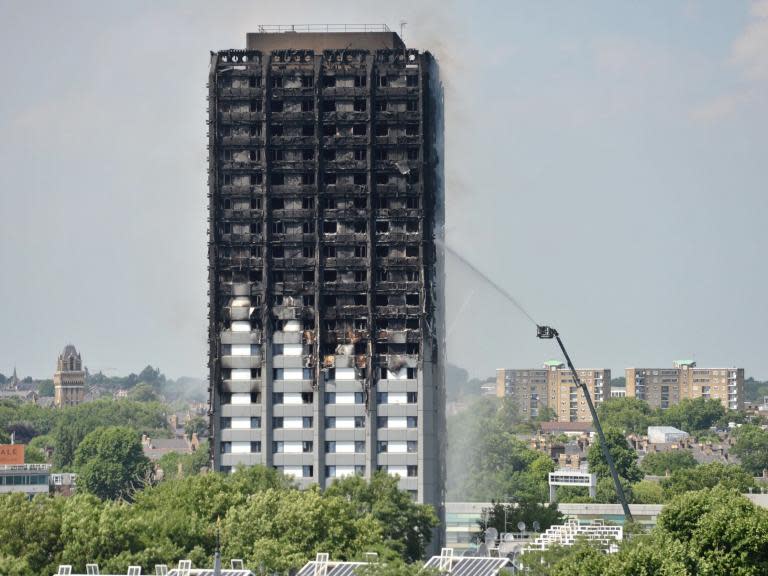Ministers accused of ‘utter complacency’ to prepare fire services after Grenfell fire
Government ministers have been accused of “utter complacency” to adequately prepare fire and rescue services for major incidents following the Grenfell Tower fire.
Two years on from the blaze that killed 72 people, the Fire Brigades Union (FBU) warned of a “postcode lottery” of preparedness across the country.
It accused the government of “repeatedly misleading the public” and for grasping “neither the severity nor the basic details” of the risk.
There is currently “no real national oversight”, it warned.
Nick Hurd, the minister for policing and the fire service, has repeatedly claimed that fire services are ready for a Grenfell-type fire, but the FBU said only three of the 48 fire and rescues services outside of London had been contacted directly by the Home Office with information about such an incident.
A further eight had been contacted by the National Fire Chiefs Council and one by the Welsh government, according to the FBU.
Figures gathered by the union show that pre-determined attendance – the number of fire engines that would initially be sent to a highrise fire – varied across the country from as few as one water-pumping fire engine up to seven. Forty fire engines were sent to Grenfell Tower on the night of the fire.
The FBU said data it had collected showed that resources outside of London were so stretched that fire and rescue services would not be able to mobilise “anywhere near that scale” in the event of a similar blaze.
The union said the government had ”done nothing” in the two years since Grenfell to address the concerns of residents and had failed to launch a national review of the “stay put” policy, as previously demanded by the FBU.
“We’re shocked at the utter complacency of the fire minister,” said FBU general secretary Matt Wrack.
“Seventy-two people died at Grenfell Tower, a fire for which London Fire Brigade had not planned. Yet the minister still does not grasp the severity, or even the basic details, of the risk across the country. It’s no longer possible to claim that fire like Grenfell is unforeseeable.
“Firefighters were placed in an impossible situation that night. But two years on, the government still has not provided the planning and resources necessary to prepare firefighters for what are now completely foreseeable risks. It is extremely worrying that as part of their pre-determined attendances, some services only plan to send two engines to a fire in a highrise building. That is nowhere near enough to tackle a blaze which occurs when compartmentation fails, like it did at Grenfell.”
The FBU said Mr Hurd appeared “oblivious” to one of the key factors at Grenfell Tower – the failure of compartmentation, the principle whereby buildings are built divided into fire-resistant compartments, and had failed to assess the risk of the failure of compartmentation, putting both firefighters and the public at risk.
“Fire and rescue services are clearly basing their pre-determined attendances upon a situation where compartmentation works. But at Grenfell it was the failure of compartmentation that caused the fire to spread so rapidly and virtually none are prepared for such an incident,” Mr Wrack added.
“Even with this optimistic assumption, the levels of attendance are mostly utterly inadequate. The difference in pre-determined attendances is also deeply worrying – there is no reason why which part of the country a building is located in should determine the safety of its residents.”
A government spokesperson said: ”We are determined to do all we can to ensure the devastating tragedy of the Grenfell Tower fire can never happen again. Fire and rescue services have the resources they need and we are encouraged that the number of fire safety audits carried out on purpose-built flats of four or more storeys more than doubled to nearly 6,600 in 2017-18, compared with the previous year.
“We have banned combustible cladding and are fully funding its replacement on highrise residential buildings in the private and social housing sectors. We have also accepted all of the principles of the independent Hackitt Review and will be consulting on proposals ahead of legislation.”

 Yahoo News
Yahoo News 

